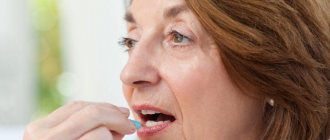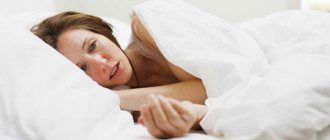Many of today’s women strive to look thin and slender, and weight loss medications after 50 years are prescribed to women with menopause to correct weight and level out hormonal changes in the body that lead to excess weight gain. These drugs differ in effectiveness and mechanism of action on the body. However, often the purchase of the product is carried out without consulting a doctor. There are many widely advertised products on sale now, but it is unknown how effective they are.
Why does weight increase during menopause and why is it dangerous?
With the onset of menopause, women face the question of choosing medications that do not help with menopause. Weight gain occurs gradually, and unwanted pounds appear quickly.
The reason for weight gain is that the body stops producing female steroid hormones , and as a woman ages, she begins to lead a less active lifestyle. This can lead to slight weight gain and, in some cases, diabetes or obesity.
What to drink during menopause to maintain youth?
The onset of menopause triggers many different processes in the body. The appearance and internal sensations change, wrinkles and gray hairs appear, irritability and fatigue appear. It is impossible to make sure that menopause never comes, but you can prolong youth as much as possible and delay the onset of aging. It is important to take medications that tone up and help cope with the unsympathetic manifestations of a changing body. But what medications should you take during menopause so as not to grow old and gain weight? Let's consider.
Drugs for menopause that do not improve
It is very important not to harm yourself when taking medications.
Due to the characteristics of the body and the various stages of menopause, medications should be selected taking into account the problems:
- The initial stage of the menopause is called premenopause. It does not happen to all women. But if this stage occurs, it can last several years. At this time, menstrual cycles gradually stop.
- After this, menopause begins. However, it can occur on its own without preliminary periods. It is characterized by a complete absence of menstruation for six months and cessation of reproductive function.
- The final stage is postmenopause. At this time, all the symptoms of menopause that began to appear in premenopause may be present: hot flashes, sweating, depression, insomnia, fatigue, poor concentration.
Doctors recommend using drugs during menopause that do not make you better , and that have a complex effect on a woman’s body. They contain vitamins, adaptogens and general tonics.
Modern medicine can now offer medications that solve this problem.
Hormonal drugs and why they are dangerous
The purpose of hormonal medications during menopause is to replace declining hormones in women. Due to a decrease in the level of estrogen and progesterone in the blood, bone density decreases. She becomes susceptible to fractures. The main complication that can occur is osteoporosis.
Some of the drugs that can increase estrogen levels and support hormonal balance are:
- Proginova. Contains estadiol valeriat. Available in the form of dragees. The prescription and dosage of this drug must be agreed with a doctor, since a complete gynecological examination is necessary to avoid contraindications. Estimated cost is about 500 rubles.
- Divigel. Available in gel form. Contains estradiol. Use is possible during menopause, as well as osteoporosis. However, there are a number of contraindications: malignant tumors, endometrial hyperplasia, vaginal bleeding of various forms, acute thromboembolism. The average cost ranges from 600 to 800 rubles.
- Ovestin. Available in the form of tablets, suppositories, creams. Contains estriol. It is used for menopause, also for infertility, problems with urination, and has a number of contraindications. A doctor's prescription is required. The cost of this drug is a little more than 1000 rubles.
It is important to know! Hormonal drugs have significant disadvantages. The main ones are weight gain, delayed fluid excretion and digestive problems due to stagnation of bile. This type of medication cannot solve the problem with weight. However, it can relieve diseases of the musculoskeletal system.
There are a number of contraindications for taking hormonal drugs:
- thrombosis;
- diabetes;
- oncology of the uterus or breast;
- impaired renal and liver function;
- unexplained bleeding.
Non-hormonal, homeopathic preparations
Homeopathic medicines are characterized by containing a very small dosage of the active substance. They have no contraindications or negative side effects.
- Klimakt-Hel. Available in tablet form. Contains snake venom, sanguinaria, medicinal cuttlefish liquid, tin, strychnos ignatia and sulfur. The average price is 300 rubles.
Be careful! The drug contains lactose, so it should not be taken by people intolerant to this substance. And also for those who have liver problems.
- Cohosh. Available in capsules. The drug contains the black cohosh plant, vitamins E, B6 and B9. The cost of the drug is about 1000 rubles.
Note! The drug Cimicifuga is not recommended for use by people with intolerance or sensitivity to any of the ingredients included in the composition.
- Remens. Available in both tablets and drops. Contains snake venom, cuttlefish liquid, black cohosh and South African pilocarpus plant.
The use of the drug in the form of drops should not be used by people suffering from alcohol dependence.
The medicine in tablets is not recommended for those who are lactose intolerant. The cost of the medicine in tablets is 200 rubles, drops - 500 rubles.
Herbal remedies for menopause
The group of drugs that can be used during menopause and from which they do not recover include herbal medicines. They are not hormonal, but have the function of synthesizing substances that are analogues of hormones. They contain products exclusively of plant origin.
A special feature of their properties is the improvement of the digestive process, which entails weight loss.
Such drugs include:
- Klimadinon. Available in tablet form. Contains black cohosh root extract. Prescribed for menopause and various symptoms associated with menopause. It is contraindicated for people with liver problems. Cost about 400 rubles.
One of the drugs for menopause that does not improve
- Cyclodinone. Available in tablet form. Contains twig fruit extract. It is recommended for various menstrual disorders. The cost is within 400 rubles.
- Cliophyte. Available in the form of an elixir. The composition contains a collection of 18 herbs and honey. The drug is contraindicated for people suffering from heart failure and liver problems. Costs about 150 rubles.
Drugs to reduce appetite during menopause
With a critical hormonal imbalance during menopause, a sharp increase in body weight occurs (more than 7 kg per month). In this case, doctors recommend paying attention to drugs that correct this problem.
Appetite suppressants (anoretic) are divided depending on their composition:
- Adrenaline (Sibutramine, Mazindol (Sanorex), Trimex, Dietrin). Improves energy metabolism, suppresses hunger pangs. The dosage is prescribed individually by the doctor. It should be used for no more than 3 weeks, as long-term use causes addiction.
- Serotonin (Sertraline (Zoloft), Prozac). Along with their main function - harmonizing mood, they increase the effect of serotonin in the brain and reduce the need for heavy food.
- Additional action preparations (cellulose, Fitomucin, Turboslim, Liprina). Used as food additives. The duration of treatment is adjusted independently.
Note! In case of serious problems in the body, hormonal drugs are prescribed (Angelique, L-thyroxine, Ovestin, Femoston, Klimonorm, Yodtirox), which, due to the content of synthetic hormones, normalize metabolism and stimulate the excretory system.
The use of appetite suppressants should be strictly dosed and used only for appropriate indications.
How to get rid of excess weight during menopause - drugs and folk remedies
Most women often wonder how to lose weight during menopause. This question becomes quite relevant for women aged 40-50, since menopause and excess weight can go hand in hand. During menopause, a woman faces serious hormonal changes, which, together with other factors, cause her to gain extra pounds. However, you don’t have to give up on your figure, because losing weight requires following a proper diet, playing sports, and most importantly, giving up bad habits.
Will medications help?
It is not always possible to lose weight by changing your diet and exercise.
Many women resort to the help of drugs:
- Homeopathic. They speed up metabolic processes, make you feel better during menopause, and help you lose weight.
- Hormonal. They normalize hormonal balance and, accordingly, weight.
- Dietary supplements. They soften the symptoms of menopause and normalize the functioning of the gastrointestinal tract.
- Agents that reduce fat absorption and reduce appetite.
Before taking any weight loss medications, consult a doctor. Many medications have contraindications and can worsen your health and aggravate the symptoms of menopause.
For menopause, the following drugs are effective: Estrovel, Cyclim, Remens.
They help improve the functioning of the body, including metabolism, over the age of 45–50 years.
Why do people gain weight during menopause?
Weight gain during menopause occurs for three main reasons:
- Changes in hormonal levels. With the advent of menopause, a woman's body reduces the level of hormones produced, in particular estrogen. Women gain weight due to serious hormonal imbalance and deterioration of metabolism.
- An attempt to normalize hormone levels. A decrease in the level of hormones produced is a stressful state for the body. He begins to look for options for obtaining the missing hormones in other ways. Fatty tissue is capable of producing estrogens, so the body tries to accumulate it. For this reason, weight gain during such a period is considered normal, and hormone replacement therapy helps to get rid of extra pounds.
- Binge eating. Mood swings are a normal reaction of the body to hormonal changes. A woman may experience depressive conditions, sometimes apathy, so she refuses physical activity and begins to eat stress. As a result, a minimal amount of physical activity and a large amount of food consumed cause sudden weight gain.
How does menopause begin and what to do?
Menopause is usually called the gradual aging of the female body after the cessation of the normal functioning of the reproductive system. This is a process that lasts from one to 10 years. It is accompanied by hormonal changes and changes, discomfort, hot flashes and other disturbances in the coordinated functioning of the body.
To successfully cope with all the changes during menopause, a woman needs to eat right, get more rest and adjust her lifestyle. The support of loved ones and the ability to accept yourself with changes are important.
Sometimes drug treatment is required to help make the discomfort less painful, improve your well-being and help you calmly endure serious changes in the body.
What to take during menopause is usually prescribed by the doctor after examining and interviewing the patient. It takes into account changes in hormonal levels, the number of symptoms and their severity. Depending on the information received, the specialist usually prescribes one of the following types of drugs:
- hormonal pills and suppositories;
- folk remedies;
- homeopathic medicines;
- non-hormonal medications;
- vitamins and minerals;
- sedatives;
- vaginal suppositories and tablets.
Non-hormonal and hormonal drugs have different modes of action. Non-hormonal ones are aimed at restoring metabolism, limiting fat deposits and excess weight, and improving digestion. Hormones are required to restore the balance of hormones and normalize all processes associated with the level of hormones in the body. What you should drink during menopause in order not to age and gain weight, the doctor will tell you, depending on the individual characteristics of the body.
How to lose weight - basic rules
Losing weight during menopause is possible if a woman puts effort into it. Getting rid of extra pounds is the main task during menopause, as they increase the already high load on the body, especially the cardiovascular and skeletal systems. To lose weight, a woman will benefit from expert advice, the main thing is that she adheres to them and wants to be healthy:
Lose weight during menopause: basic principles of success
To understand how to lose weight during menopause, you should pay attention to the main aspects of life. It is in their adjustment that the answer to the eternal women's question lies: How not to gain weight during menopause?
Nutrition
Proper nutrition during menopause is an item that should be given maximum attention. Weight loss is impossible without making adjustments in this area of life.
How not to gain weight during menopause or how to lose weight during menopause at 50 years old by adjusting your diet? Go to the article describing the menopause diet day by day for weight loss.
You should pay attention to the number of calories. With age, the daily caloric intake decreases, so you should review your diet in accordance with optimal indicators.
No less important is what foods form the basis of a woman’s diet. Thus, consuming excess amounts of carbohydrates can cause excess weight during menostasis. Fats should also be limited. The diet should be dominated by foods high in protein, fiber, vitamins and minerals. Cereals, vegetables, fruits, dietary meats and fish, nuts and dried fruits, dairy products - this is the basis of a healthy diet during menopause, ensuring weight loss.
You should also pay attention to the methods of cooking. It is better to boil, stew, or steam foods, but it is better to completely avoid frying.
To avoid gaining weight, you need to avoid overeating. It is better to adhere to the principles of fractional nutrition, that is, eat often, but little by little.
What to do if hunger still catches you by surprise? Be sure to satisfy your desire, but not with a cake or a hamburger, but with nuts, an apple, a banana, and unsweetened yogurt.
Overeating in the evening is another cause of the problem. After 18-19 hours it is better to limit yourself to eating light, low-calorie foods.
During menopause, in order not to provoke weight gain, it is necessary to avoid drinking alcoholic beverages, as they not only increase appetite, but also disrupt the process of digestion of food, which leads to weight gain.
A diet for losing weight during menopause is exactly what you should avoid. Unless, of course, it claims to become a way of life. After all, a constant way of eating, which implies certain restrictions, can also be called a diet. But if this term means a strict restriction in food for a certain period of time, then such experiments during menopause are fraught with an even greater aggravation of the situation.
An artificially created nutrient deficiency is perceived by the body as a threat, and it seeks to increase its reserves of adipose tissue. This is not at all the effect that you want to achieve. Therefore, diets, in the classical sense of the word, are simply prohibited for women aged 40-50 years. Most often, after them, the fair sex recovers even more.
Drinking balance
Another answer to women’s age-old question, “Why am I gaining excess weight?” may be insufficient water intake. This is fraught with a slowdown in metabolic processes, problems with the functioning of the gastrointestinal tract during menopause, and a deterioration in overall well-being. In the fight against excess weight, it is extremely important to drink more. Water helps curb your appetite, speed up your metabolism, and also replaces high-calorie drinks. Drinking at least 1.5 liters of clean water during the day is an excellent habit that will help you lose weight during menostasis.
How not to gain weight during menopause
When considering the question of how not to gain weight during menopause, a woman should pay most attention to sports. Physical activity can easily keep your weight at the same level. It must be remembered that in order to avoid weight gain, any gymnastics must be supplemented by a proper diet. It’s easy to avoid gaining everything and maintain a slim figure if you follow simple rules:
- You need to exercise regularly during menopause, but not every day. 3-4 workouts per week are enough.
- There is no need to overload yourself. Only 20 minutes are enough to complete the exercises.
- If a woman feels that 20 minutes is not enough, she can gradually increase the time by a few minutes each week. The main rule is that exercise should be a joy and not cause discomfort.
- If 20 minutes is a lot, don't be disappointed. Between exercises, take short breaks of 3-5 minutes.
- It must be remembered that physical activity should improve tone, give the missing energy, and not take it away.
- It will be easier to maintain weight during menopause if you do gymnastics in the fresh air. However, drafts should be avoided.
- It is necessary to perform exercises in a comfortable sports suit made of natural material that allows the body to breathe.
- Be sure to combine physical and breathing exercises.
- Any exercise should be fun and easy. Otherwise it will be less effective.
Stop, excess weight! How can a woman lose weight during menopause?
In the life of every woman whose age is approaching 50, a turning point comes - menopause. Simply put, menopause. Alas, it is inevitable and entails irreversible hormonal changes in the body. Along with them, physical discomfort, emotional disturbances arise and, most offensively, excess weight rapidly increases. Although you know for sure that you did not change your eating habits and did not increase the size of your portions. An alarming question arises: how can a woman lose weight during menopause while maintaining external attractiveness, activity and health?
Don't worry or get upset prematurely. Menopause is not a death sentence, but just a new, albeit difficult, stage of life. And, believe me, it is in your power to make sure that it passes safely and almost unnoticed both for your well-being and for the bathroom scales. To lose weight after 50, first of all, you must approach your own diet with great attention, create the right diet and follow the rules of eating behavior. But first, let’s figure out why it’s so easy to gain extra pounds during menopause.
Diet for weight loss
A diet for losing weight during menopause is a guarantee of maintaining excellent health and a slim figure. During menopause, it is important to eat right, but this does not mean that you have to follow a strict diet. You just need to stick to a balanced diet, which is aimed at maintaining the required level of substances necessary for the healthy functioning of the body. Losing weight by following proper nutrition is quite simple, especially supplementing it with physical activity and giving up unhealthy foods and habits.
Healthy foods
A woman's healthy diet should include the following foods:
- non-fatty meats and fish;
- low-fat or low-fat dairy products;
- cereals, bran;
- greens with vegetables;
- berries and fruits;
- dried fruits, nuts;
- freshly squeezed juices, herbal infusions;
- vegetable oils;
- legumes;
- garlic with onions.
It is important to remember - it is better to eat boiled, stewed, steamed, or oven-baked dishes.
Harmful
You should avoid using:
- fatty meat;
- semi-finished products, fast foods;
- sweets, baked goods;
- smoked meats;
- canned foods;
- spicy, unnatural sauces;
- margarine;
- soda, especially sweet, unnatural juices;
- caffeine;
- alcoholic beverages, tobacco products.
Sample menu for the week
Everyone can independently create an individual menu for the week, following the advice of nutritionists.
- muesli with natural yogurt, banana and nuts;
- toast with low-fat cottage cheese, boiled egg, green hour with fruit salad;
- vegetable salad dressed with olive oil, toast with berry jam, rosehip infusion;
- pumpkin pancakes, berry smoothie.
- mashed potatoes with boiled chicken breast, vegetable salad;
- buckwheat porridge with steamed fish, cottage cheese;
- lean borscht, a slice of bread with fish pate;
- vegetable soup, bean puree.
- vegetable stew, rice cutlet, apple;
- boiled beans, a slice of bread, a little liver pate, one orange;
- millet porridge with lean chop, cucumber and tomato salad;
- steamed chicken cutlets with vegetable salad.
What to do with excess weight?
Not everyone wants to get rid of excess fat, doubting whether they will lose weight during menopause. After all, hormonal changes are irreversible, youth cannot be restored, and many people attach less and less importance to external attractiveness with age. Besides, since fat at least slightly compensates for the estrogen deficiency, maybe let it remain?
Those who are sure of this are completely wrong. Instead of doubting whether it is possible to lose weight during menopause, it is worth taking on this no longer for external attractiveness, but for the sake of health. After all, excess weight is an added load on joints and bones. And they already suffer from a deficiency of calcium, which makes them strong. The risk of injury is high even for thin people, let alone fat ones.
In addition, fat is deposited on the walls of blood vessels in the form of cholesterol. This is direct harm to the heart and brain, which also experience the manifestations of menopause. Hot flashes, arrhythmia, shortness of breath do not make you feel good, but with high cholesterol they are guaranteed.
Those who have already felt what fullness is like during menopause should first find out from their doctor what to do. You should not address this question to your younger friends or daughter. Strict diets and eating habits that are suitable for young people are not suitable for menopause. They can further undermine your health, but not achieve the desired result.
Is it possible to prevent the deposition of excess fat?
Those who have remained slim when approaching the age of menopause are interested in how not to gain weight during menopause. Such lucky women should keep in mind that maintaining the previous lifestyle, which would be correct for a young woman, will not help this.
Metabolism slows down so much that out of 1000 kilocalories eaten, only 300 are “burnt”, and 700 are deposited on the sides and stomach. To avoid gaining weight during menopause, you should take into account some dietary and lifestyle habits:
- Reduce the number of kilocalories consumed. If at the age of 20 the body needs 1600-2000 units to maintain weight, during menopause a smaller amount is needed;
- Energy should come to the body primarily in the form of proteins, vitamins and fiber. Nutrition during menopause is primarily a reduction in the amount of fats and carbohydrates. And among the first, preference should be given to vegetable, polyunsaturated ones;
- Reduce the amount of food you eat at each meal. Distribute it so that the largest amount is for breakfast and the smallest for dinner. To simplify the task, you can keep a notebook where you can write down everything you eat;
- Do not use fasting days with a monotonous diet or fasting to stay in shape;
- While worrying about how not to gain weight during menopause, we must not forget about physical activity. It is necessary to strengthen the muscle corset, which is important for bones weakened by the inevitable loss of calcium, and to stimulate metabolism;
- Cells need water. You need to drink up to 2 liters per day. This amount does not include compotes, soups and other liquid foods, but you can supplement clean water with tea and natural coffee. Herbal decoctions will also be useful;
- An important point is how to eat during menopause so as not to gain weight. You can start your meal with a glass of cold water. It will take up space in the stomach, which will allow you to painlessly reduce the portion and will require the body to waste energy to warm up. Liquid drunk before meals is a “magic kick” to metabolism and improves digestion.
Read more about the nuances of nutrition during menopause
The need to maintain or lose weight does not mean giving up gastronomic pleasures.
It’s just that food during menopause is a source of energy, not gluttony. Of course, you will have to reduce the amount of sugar in any form, even if there is no need to lose weight. You should refuse or reduce your presence at the table to a minimum:
- Alcohol;
- Butter, lard;
- Ice cream;
- Butter pastries;
- Sweet carbonated drinks;
- Jam;
- Fat yoghurts;
- Chocolate.
In addition to weight gain, these delicacies pose a threat of impaired carbohydrate metabolism, that is, the appearance of diabetes mellitus. Then the diet will have to be even more strict.
What products are needed during menopause in women to feel normal and not be afraid of extra pounds? Will help with this:
- Low-fat cheeses and cottage cheese. They make you feel full and provide calcium to your bones;
- Lean meat, fish, turkey, chicken. These are sources of collagen building material for cells, as well as polyunsaturated fatty acids;
- Beans, legumes. Plant protein is needed for regenerative processes in the body. In addition, it is a low-calorie and filling food;
- Vegetables (especially green ones), seeds, nuts and fruits. Vitamins are needed at any age; during menopause, E and B are especially important. They maintain blood vessels and the entire body in tone, and participate in the processes occurring in it. Fiber is needed for the smooth functioning of the digestive organs;
- Coarse bread, durum wheat pasta. Their presence is necessary, although in small quantities. These are slow carbohydrates that support the functioning of the endocrine system.
When it comes to eating during menopause, food preparation methods are important. It is better when it is stewed, boiled or fresh. It has more benefits and fewer calories.
You should avoid snacking, they will only ruin your appetite by overloading your stomach. It would be good to forget about mayonnaise and hot seasonings. The sauce is very high in calories and contains a lot of unnecessary fat and sugar. And seasonings whet your appetite and increase hot flashes.
What to eat all day?
In order not to eat too much, a menu for menopause can be drawn up in advance by calculating the amount of kilocalories.
In the first half of the day you can eat foods with the highest energy value. It’s better to have low-calorie ones for dinner. Breakfasts can consist of a choice of:
- Corn flakes with milk or yogurt, a piece of meat;
- Two pieces of toast with low-fat cheese, an egg and a couple of apples and oranges;
- Spaghetti with a piece of chicken, salad with sunflower oil;
- Toast with jam, 100 ml soy drink with chopped banana, boiled beans.
For lunch you can prepare one of the following options:
- Spinach salad with cheese, bun, piece of baked fish;
- Vegetable stew, sandwich with tomato, turkey or chicken, spaghetti;
- Vegetable soup with a slice of bread, oatmeal with water or buckwheat with stewed beef, a handful of nuts;
- Protein omelet, green salad with yogurt, toast with cheese;
- Brown rice with broccoli and fish stew;
- Mashed potatoes with beef or chicken, vegetable soup.
Dinner may consist of:
- A piece of chicken and a green apple;
- Cottage cheese and fruits;
- Kefir and bran buns;
- Soft-boiled eggs and vegetable salad.
Proper nutrition during menopause, if there is no need to lose weight, but need to keep it stable, does not exclude the occasional consumption of apple marshmallows, raisins, and marmalade.
Folk remedies for weight loss
During menopause, it is very important to maintain a healthy lifestyle. Traditional recipes will help a woman get rid of extra pounds and maintain a normal weight level for a long time. However, it should be remembered that for maximum effectiveness, it is recommended to use traditional medicine under the strict supervision of a specialist. Otherwise, the likelihood of side effects increases - a woman may choose the wrong folk remedies for weight loss or calculate the dosage.
- Ginger is an extremely beneficial product for the body. It easily cleanses the body of accumulated harmful substances and improves metabolism. To lose weight, it will be enough to add 1 tsp to any drink. chopped ginger, season it with lemon, honey, cinnamon.
- Natural juices are an effective way to saturate the body with useful substances and vitamins. However, it should be remembered that fruit and vegetable juices cannot be consumed in concentrated form. The body may react unpredictably, for example, with an allergic reaction. For a milder effect on the body, fresh juice must be diluted with boiled water.
- Particularly popular and quite effective for weight loss are decoctions of medicinal plants. One of these drinks is rosehip decoction. To prepare, you need to mix linden blossom, cherry leaves, St. John's wort, and milkweed in a ratio of 2:2:1:1. Pour boiling water over the composition, leave for 20-30 minutes, strain. Consume half an hour after meals.
Medications
Quite often, women start taking pills to lose weight, especially if the diet does not produce results. However, when choosing drugs for weight loss during menopause, women often rely on the advice of friends and reviews of online forums. This is wrong - if a woman decides to purchase drugs for weight loss, she must remember that only the attending physician should choose and prescribe medications. Otherwise, there is a high probability of achieving the completely opposite effect.
Modern medicine provides women with a wide range of medications that not only reduce weight, but also have various characteristics. In order not to gain weight, you need to take the following groups of drugs:
- Dietary supplements that help stabilize the functioning of the stomach and intestines, alleviating the symptoms of menopause;
- homeopathy, which stimulates metabolic processes that promote accelerated weight loss;
- drugs aimed at normalizing hormonal levels, protecting against the accumulation of fat in the abdominal cavity;
- medications that suppress appetite and weaken the process of absorption of fat cells.
Non-hormonal drugs may not always have the desired effect for weight loss, since the cause of excess weight may lie in hormonal imbalance. In any case, you must remember that you cannot self-medicate. Any medications must be prescribed by a specialist.
Indications for the use of weight loss products
Usually they start therapy with non-hormonal drugs, adding hormones only if they cannot be avoided. A woman’s attempt to prescribe hormones on her own can result in weight gain and a radical hormonal imbalance.
Regardless of the chosen therapy, it is often necessary to adjust the feeling of hunger and reduce appetite. Such drugs are used when it is impossible to control the portion size and you want to eat all the time. They affect appetite levels and maintain seratonin levels, so the patient will be able to control the constant desire to snack.
In addition, such medications are prescribed when sleep is disturbed. It is known that constant lack of sleep in women transforms into new fat deposits. A woman who sleeps the 8-9 hours she needs will not experience a constant feeling of hunger. Menopause disrupts both processes, and appetite regulators help a woman keep them under control.
Some drugs in this spectrum are analogues of conventional cellulose. Their task is to swell in the stomach and take up more space there. This creates a feeling of fullness without eating a lot. Moreover, the drug itself is harmless and natural.
Reviews from women
It is not always easy for a woman to decide on the choice of method for losing weight. Reviews from women losing weight during menopause will help you make the right choice.
Antonina, 60 years old, St. Petersburg
For the past 10 years I have been trying to lead a healthy lifestyle. I regularly go for walks and do recreational gymnastics. During menopause, it is quite difficult to lose weight, but with the help of a healthy lifestyle it is possible to maintain it at the same level without gaining weight.
Ekaterina, 49 years old, Moscow
I guess menopause affects everyone differently, since I even lost weight. Now I try to do morning exercises regularly and have given up bad habits. Weight gain has not yet been observed, so I don’t see the point in using any pills.
Valeria, 56 years old, Ekaterinburg
With the advent of menopause I have gained a lot of weight, but I am trying to control myself. I go for a walk every evening and have removed fatty foods from my diet. There is no significant reduction in weight, but most importantly, it does not increase.
Even during the onset of menopause, a woman should not despair. It is necessary to monitor your health and maintain it at the highest possible level. Excess weight has a negative impact on a woman’s overall health and well-being. Therefore, following simple rules, you can maintain your weight at the same level without gaining weight, even without the use of medicinal methods.
Consequences of changes in adipose tissue
Metabolic disorders
The deposition of fatty tissue in the abdominal area is one of the components of the so-called metabolic syndrome X (insulin resistance syndrome). This traditionally “male” disease threatens women during menopause, when the relative amount of androgens increases and estrogens, respectively, decreases. The consequences of the development of this syndrome are type 2 diabetes mellitus, coronary heart disease, hypertension and lipid metabolism disorders.
Most often, even minor changes in figure during menopause, against the background of general stress, make a woman feel inferior and unattractive. Because of this, problems often arise in the sexual sphere and a depressive state may even develop - especially if a woman tends to “eat up” nervous disorders.
How to do without hormones during menopause - 15 best medications
In severe cases of menopause, women are prescribed hormone replacement therapy. But there are a number of contraindications for this type of treatment. What to do to relieve unpleasant symptoms and restore functionality? Non-hormonal medications will come to the rescue: with mild menopause in women, they cope with the situation perfectly.
What are the features of non-hormonal therapy?
A decrease in hormonal levels after 40 years is accompanied by changes in the menstrual cycle and the functioning of various organs in a woman’s body. This is the so-called menopause. Sometimes it goes unnoticed, but in many women it is accompanied by the appearance of the famous hot flashes to the face and upper body (they can be single or very frequent, depriving a woman of her ability to work), changes in blood pressure (BP), accompanied by headaches and dizziness, attacks of palpitations and pain in the heart, etc. But the woman is especially concerned about mental disorders: constant irritability, aggressiveness, tearfulness, often turning into depression. The list of women’s complaints can be continued endlessly, since literally all organs and systems are interested.
If the symptoms of menopause are minor, then when menopause occurs, a woman will benefit from a healthy lifestyle, physical activity and proper nutrition. If this does not help, then hormonal drugs. The advantages of hormone replacement therapy (HRT) are the rapid relief of attacks, and the disadvantages are the presence of contraindications for use and side effects.
In recent years, many non-hormonal drugs have appeared to treat menopause. The advantage of these drugs is their relative safety: they have much fewer contraindications and side effects . There is a sufficient selection of such products, from which you can individually choose the most suitable one for a given woman. The disadvantages of non-hormonal treatment include the lack of a quick therapeutic effect: non-hormonal drug therapy requires long-term treatment.
Why is it easier to gain weight during menopause?
More than half of women note that the onset of menopause brought them from 2 to 5 extra pounds, despite restraint in food intake and regular exercise. In this case, most often fat accumulations become more noticeable in the abdomen and thighs.
These changes are natural and fairly easy to explain. The fact is that a decrease in estrogen production forces the body to obtain them not only in the usual way - from the ovaries. Adipose tissue allows the conversion of male hormones (androgens), which are produced by the adrenal glands, into the necessary substances. It turns out that the less female hormones the body produces, the more fat it tends to accumulate as a kind of buffer to mitigate the effects of menopause.
Thus, noticeable changes in your figure can be the first signal of a change in hormonal levels, even in the absence of other symptoms. If they appear over the age of 40, you must immediately consult a doctor in order to start therapy in a timely manner. If you do not take any action to improve your hormonal levels, all other actions to reduce body weight (diet, sports, etc.) will most likely be ineffective or completely ineffective.
Products with herbal estrogen substitutes
Phytohormones are often prescribed as non-hormonal drugs for menopause in women. These are medications and dietary supplements (dietary supplements), containing plant substances that have the same effect on the body as natural female sex hormones.
Phytoestrogens have different chemical structures, but act in the same way as estrogens by connecting to the receptors of these hormones located on the surface of cells in target organs (ovaries, uterus, mammary glands). Non-hormonal medications for menopause in women (phytoestrogens), list:
Estrovel (Valeant Pharma, Belarus)
Dietary supplement with phytoestrogens (extracts of soybean seeds, chaste tree fruits, rhizomes with dioscorea roots). When taken as a course, it eliminates the symptoms of menopause and frequent flushing of the face. Drink 1-2 capsules per day for 4 weeks.
Feminal (Jadran, Croatia)
Dietary supplement with red clover extract contains 4 isoflavones, which have maximum similarity to estrogens. Effectively relieves menopausal symptoms. Drink 1 capsule per day with meals for a month. If necessary, after consulting a doctor, dietary supplements can be taken for a long time.
Klimadinon and Klimadinon Uno (Bionorica, Germany)
Medicines with dry extract of black cohosh rhizomes. A Klimadinon tablet contains 20 mg of active ingredient, while Klimadinon Uno contains 32.5 mg. The drug relieves vegetative and neuropsychic disorders well and prevents the development of osteoporosis. Klimadinon is taken one tablet 2 times a day, Klimadinon Uno is taken one tablet once a day. The course of treatment is from 1 to 3 months.
Compensate for estrogen deficiency
Estrogens are female hormones that are largely responsible for metabolism. They control the functioning of not only the reproductive system, but also the cardiovascular, nervous and many others, which determine the functioning of the body as a whole. The condition of the skin, hair and nails, as well as the density of the walls of blood vessels, depends on them.
Only here professional psychologist Elonia Lavrenova answers your questions. Ask a Question
Sources:
https://mesyachnyedni.ru/klimaks/lechenie/kak-poxudet-pri-klimakse.html https://aveslim.ru/sposoby/metody/kak-pohudet-pri-klimakse.html https://klimaxan.ru/ useful/klimaks-eto-novaya-faza-zhizni-kotoraya-mozhet-i-dolzhna-byt-vpolne-blagopriyatnoy/
Preparations with cytamines: Ovariamine
Cytamines are biologically active substances obtained from animal organs and tissues. Cytamines are used to eliminate various pathologies.
During menopause, the dietary supplement Ovariamin is prescribed , the active ingredients of which are cytamines obtained from the ovaries of cattle. The mechanism of their action is similar to phytohormones. The dietary supplement also contains vitamins A, E, group B, as well as macro- and microelements.
When used as a course, Ovariamin restores hormonal levels and metabolic processes, eliminates the main manifestations of menopausal syndrome. This dietary supplement is especially effective when simultaneously prescribing calcium supplements for the prevention of osteoporosis.
Take the dietary supplement Ovariamin 2-3 times a day for two weeks.
Vaginal suppositories
During menopause, fluid loss occurs from the skin and mucous membranes. As a result, a woman’s skin quickly ages and becomes covered with wrinkles. Dryness of the mucous membranes also manifests itself in the area of the external genitalia. They become thinner, easily injured and serve as entry points for infection. Therefore, postmenopausal women often develop inflammatory processes (vulvovaginitis). Sexual life is also disrupted - the slightest injury to the mucous membranes causes pain and bleeding. Some local medications are absorbed into the blood and have a general hormonal-regulating effect.
Therefore, a course of non-hormonal therapy should include the use of local medications to restore the mucous membranes of the external genitalia : List of drugs for local treatment:
Klimaktol-Antikan (Verbena, Russia)
Rectal and vaginal suppositories with plant extracts containing phytoestrogens (hop cones), as well as oil extracts of herbs, which have a softening and restorative effect on the mucous membranes of the genital organs and urinary tract; apply 1 suppository at night in the rectum or vagina for 4-8 weeks;
Cicatridine (Pharma-Derma, Italy)
Cicatridina – vaginal suppositories with hyaluronic acid. It attracts water to itself, as a result the mucous membranes come to life and are restored. Well relieves dryness of the mucous membranes of the external genital organs and urinary tract. Use 1 suppository at night until the condition normalizes;
Vagikal (Farmina Ltd, Poland)
Vagical – vaginal suppositories with extract of Calendula officinalis flowers; have a stimulating and restorative effect on the mucous membrane; as an antiseptic and anti-inflammatory agent, it prevents the development of infectious and inflammatory processes of the external genital organs. Apply 1 suppository 2 – 3 times a day for two weeks;
Feminella hialosoft (Angelini, Austria)
Feminella Hyalosoft – vaginal suppositories with hyaluronic acid and herbal extracts; attract water, revitalize and restore the vaginal mucosa during its atrophic changes associated with menopause; during menopause, use 1 suppository 1 time per day in the vagina; the course of treatment is 10 days; if there is a need to continue, suppositories are used twice a week.
What foods are healthy to eat?
Dairy products.
Milk and its derivatives are a natural source of easily digestible calcium. Its intake into the body during menopause is especially important, since during this period calcium is actively washed out of bone tissue. As a result, when there is a lack of it, bones become brittle, and the risk of fractures increases even with a relatively weak blow or even just physical activity. Teeth, hair and nails also suffer from calcium deficiency. When it comes to teeth, it is important to remember that simply consuming calcium-rich foods does not guarantee their health - you must carefully maintain oral hygiene and do not forget about regular visits to the dentist.
Green tea.
Speaking about measures to improve the condition of bone tissue during menopause, it is worth mentioning a product such as green tea. It contains catechins - substances that actively stimulate bone tissue regeneration. Without a regular supply of these substances during menopause, the body loses 2-3% of bone mass annually. Green tea is also useful in that it helps maintain the elasticity of blood vessels, normalizes blood pressure, promotes the breakdown of cholesterol in the blood and reduces body weight.
Vegetables and fruits.
After 50 years, a woman’s body experiences an urgent need for vitamins, the possible deficiency of which will help compensate for the inclusion of fresh vegetables and fruits in the daily diet. They cannot be fully replaced by taking multivitamin preparations, since these products also contain dietary fiber and other beneficial substances. To get the maximum benefit from vegetables and fruits, they need to be eaten either fresh or cooked with minimal heat treatment. It is useful to freeze or preserve them for the winter.
Greenery.
Greens, like fruits and vegetables, contain a lot of vitamins and help prevent many diseases of the digestive system. Regular consumption of fresh greens helps maintain the beauty of hair and skin.
Beauty and health will remain with a woman even after 50 years, if you use these products daily when preparing food and minimize the amount of spicy, fatty, excessively salty and sweet foods, as well as alcohol.
Compensate for estrogen deficiency
Estrogens are female hormones that are largely responsible for metabolism. They control the functioning of not only the reproductive system, but also the cardiovascular, nervous and many others, which determine the functioning of the body as a whole. The condition of the skin, hair and nails, as well as the density of the walls of blood vessels, depends on them.
Selective estrogen receptor modulators: Evista
Selective estrogen receptor modulators are drugs that act selectively as estrogens in some (non-reproductive) tissues and as anti-estrogens in other (reproductive) tissues.
Temoxifen was the first drug in this group to be discovered. It acted as an estrogen in relation to bone tissue (preventing the development of osteoprorosis) and as an anti-estrogen in relation to the mammary gland (suppressing cell proliferation - proliferation and their degeneration into cancer). A side effect of tamoxifen was considered to be its estrogenic effect on the endometrium - stimulating proliferation. Tamoxifen is used only as an antitumor agent in the treatment of breast cancer.
The next generation of selective estrogen receptor modulators includes raloxifene. As an estrogen, it has a positive effect on bone tissue, lipid metabolism (prevention of atherosclerosis) and the blood coagulation system (increases the risk of thrombosis). How an anti-estrogen affects the mammary gland without affecting the endometrium. Therefore, raloxifene is used for the prevention and treatment of osteoporosis during menopause.
Raloxifene is produced by pharmaceutical companies Lilly S.A., Spain and Daiichi Sankyo, Germany in 60 mg tablets under the trade name Evista. Taken daily for a long time and under the supervision of laboratory blood tests.
Drugs for symptomatic treatment
Menopausal syndrome manifests itself as a list of numerous symptoms. First of all, the neuropsychic state suffers. Therefore, sedative (calming), anxiolytic (anti-anxiety) medications, as well as antidepressants are prescribed. All these drugs are selected by the doctor for each patient individually for daily use and at night.
Magne B6 (Sanofi Winthrop Industrie, France)
To eliminate vegetative manifestations during menopause, it is recommended to take courses of the vitamin preparation Magne B6 , which contains magnesium and vitamin B6 (pyridoxine). The mechanism of action of the drug is associated with the normalization of the conduction of nerve impulses along the fibers and the regulation of the tone of the walls of blood vessels. This leads to normalization of the activity of the autonomic nervous system. Magnesium is involved in cellular metabolism, energy production and hormone synthesis. As a result of treatment, palpitations, changes in blood pressure, dizziness and headaches are eliminated. Take the medicine 3-6 tablets per day under the supervision of laboratory tests: as soon as the magnesium content in the blood is normalized, the drug is discontinued.
Klimalanin (Bouchard laboratory, France)
To reduce the frequency of flushes of blood to the face and upper half of the body, Klimalanine is prescribed , the active ingredient of which is the amino acid beta-alanine. The mechanism of action of this drug is associated with blocking the release of histamine, which promotes rapid vasodilation. The drug is prescribed as a tablet 2-3 times a day for 5-10 days until the hot flashes disappear. If hot flashes return, the course of treatment can be repeated after consulting your doctor.











